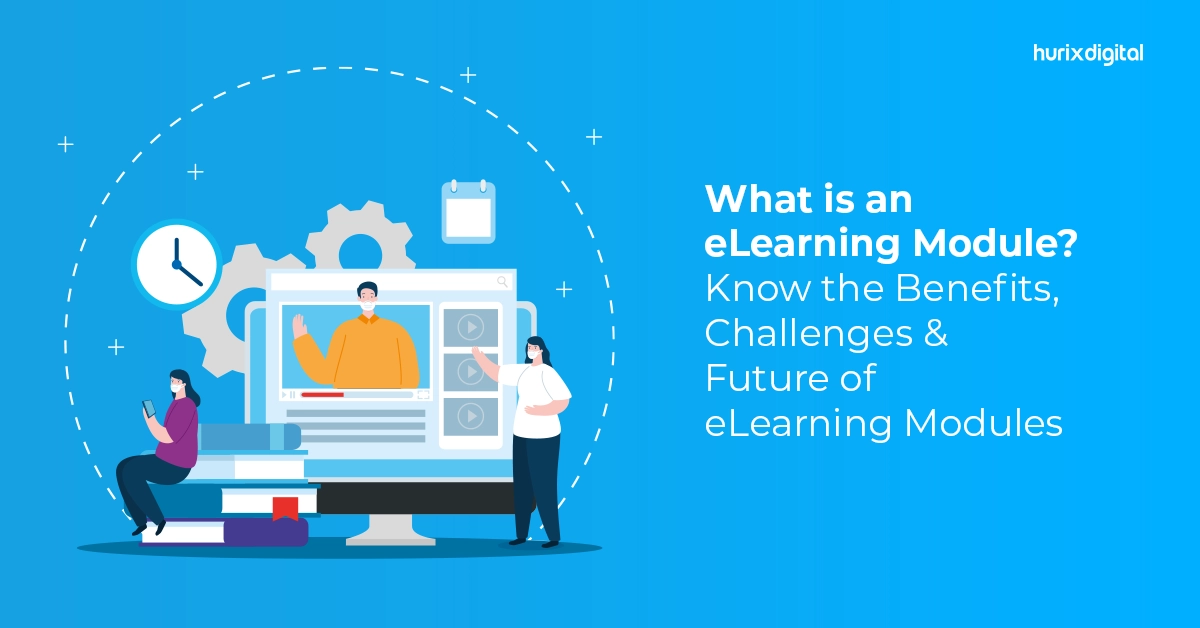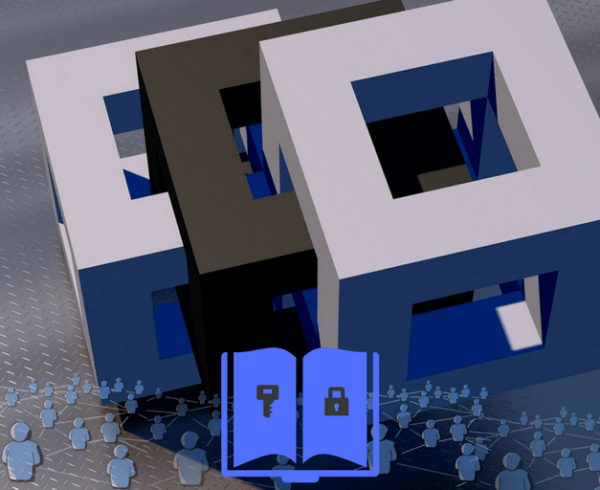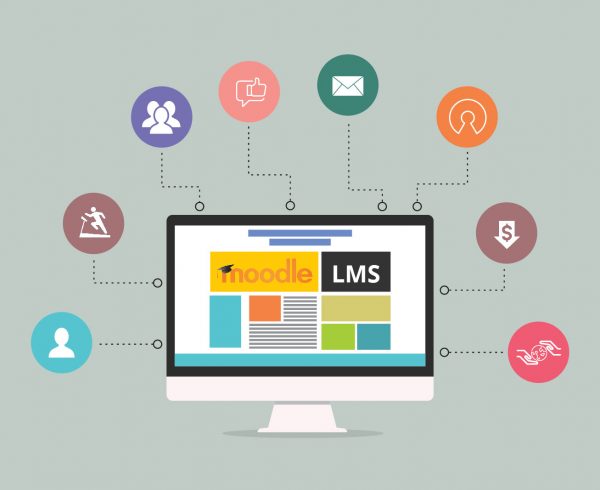Summary
This article provides an overview of eLearning modules, including their advantages, challenges, and innovations.
The pandemic has rapidly transformed how we approach education, leading to a significant shift towards eLearning modules.
As the world adapts to the new normal, online learning has emerged as a safe and convenient way to acquire new skills, explore career options, and engage in extra-curricular activities. The demand for eLearning has surged and is expected to grow as society embraces the concept of “social distancing.”
Table of Contents:
- What are the Advantages of eLearning Modules?
- What are the Challenges of eLearning Modules?
- Innovations Shaping the Future of eLearning Modules
- The Future of eLearning Modules
What are the Advantages of eLearning Modules?
1. Efficiency
One of the key advantages of eLearning modules is their efficiency in delivering lessons. With the click of a button, instructors can utilize videos, share resource links, and administer assessment tests.
Additionally, lectures can be recorded and shared for reference, reaching a wider audience. Technology allows for a larger number of students to be taught simultaneously, maximizing the reach and impact of education.
2. Affordability
eLearning modules are significantly more affordable than traditional classroom-based learning. By eliminating the need for physical infrastructure and transportation costs, eLearning reduces the financial burden on educational institutions and students.
Course materials and resources are available online, accessible anytime and anywhere, allowing cost-effective learning experiences.
3. Increased Access and Reach
eLearning modules transcend geographical boundaries, allowing students to access lessons from any location with internet connectivity.
This opens up educational opportunities for individuals who may not have had access to quality education due to physical limitations. As long as there is a device and internet connection, learning can happen anytime, anywhere.
4. Personalized Education
eLearning modules enable personalized learning experiences tailored to individual students’ needs and interests. Advanced algorithms, artificial intelligence (AI), and machine learning have paved the way for adaptive learning.
Materials, activities, and assessments are customized to cater to each student’s specific requirements. This learner-centric approach fosters engagement and enhances the effectiveness of the educational experience.
5. Encourages Engagement and Participation
Online learning modules often incorporate gamification elements, turning the learning process into an interactive and engaging experience.
By incorporating challenges, interactive components, and the opportunity to build strategies, eLearning modules tap into the psychology of cognitive engagement.
Students enjoy the sense of accomplishment that comes with leveling up, receiving rapid feedback, and interacting with characters with distinct personalities.
Also Read: 7 Reasons Why You Should Digitize Your Training & Development Program in 2023
What are the Challenges of eLearning Modules?
While eLearning modules offer numerous advantages, they also pose certain challenges that need to be addressed for optimal implementation and effectiveness.
1. Learning Style Compatibility
Acknowledging that not all students’ learning styles are suited to eLearning modules is important. Some individuals may thrive in a visual or auditory learning environment, while others require kinesthetic or hands-on experiences.
eLearning, which primarily involves sitting in front of a device and absorbing information, may not cater to all learning styles equally. Educators must explore diverse instructional strategies and provide alternative learning options to ensure inclusivity.
2. Focus and Boredom
Virtual lectures in eLearning modules may challenge maintaining students’ focus for extended periods. The absence of face-to-face interaction and physical classroom dynamics can lead to boredom and decreased engagement.
Instructors must design online sessions that are crisp, interactive, and captivating, employing various instructional techniques to ensure students grasp the content effectively.
3. Technological Constraints
While internet penetration has improved significantly, especially in urban areas, technological infrastructure remains challenging in certain regions, particularly rural or remote areas. Inadequate data connectivity can disrupt the continuity of learning, hindering students’ progress.
Additionally, students who are not technologically adept may face difficulties in navigating online platforms and tools. Efforts should be made to bridge the digital divide and support students who require assistance adapting to eLearning technologies.
4. Lack of Social Interaction
Traditional classroom settings offer valuable opportunities for social interaction and peer learning, which may be lacking in eLearning modules.
The absence of physical interactions can limit students’ ability to engage in meaningful dialogue, share ideas, and learn from their peers. Educators must explore innovative approaches to foster virtual social interactions and create collaborative learning environments to mitigate this challenge.
5. Teacher Training and Support
Successful implementation of eLearning modules requires educators to be proficient in utilizing technology effectively. However, not all teachers possess the necessary technological skills and knowledge.
Adequate training and support should be provided to educators to ensure they are equipped to deliver engaging and effective classes using online training module software.
Continuous professional development programs can help teachers stay updated with technological advancements and teaching methodologies.
6. Screen Time Management
Extended screen time can lead to various health issues, including eye strain, fatigue, and poor posture. It is crucial to establish guidelines and best practices for managing screen time during eLearning sessions.
Encouraging short breaks, incorporating physical activities, and promoting a balanced approach to an online learning module can help mitigate the negative effects of prolonged screen exposure.
Also Read: How to Create the Best Simulation Training for Your Company?
WHITEPAPER:
Maximizing the ROI & Business Impact of Enterprise Learning
Innovations Shaping the Future of eLearning Modules
As technology advances, eLearning modules are poised to undergo further transformations, offering exciting possibilities for the future of education.
1. Virtual Reality (VR) and Augmented Reality (AR)
Virtual Reality (VR) and Augmented Reality (AR) technologies have the potential to revolutionize eLearning modules. By immersing students in simulated environments, VR and AR can provide realistic and interactive learning experiences.
These technologies enable students to engage in hands-on learning, enhancing their understanding and retention of complex concepts.
2. Artificial Intelligence (AI) and Adaptive Learning
Artificial Intelligence (AI) algorithms and adaptive learning systems make personalized education a reality. AI-powered platforms analyze student data, identify learning patterns, and adapt instructional materials to suit individual needs.
Adaptive learning algorithms can dynamically adjust the difficulty level, pace, and content to optimize the learning experience for each student. This personalized approach enhances student engagement, motivation, and overall learning outcomes.
3. Mobile Learning (mLearning)
The widespread use of smartphones and tablets has paved the way for mobile learning (mLearning).
mLearning is an eLearning module example where students can access educational content on the go, allowing for seamless learning experiences beyond the confines of a physical classroom.
As mobile devices become more powerful and internet connectivity improves, mLearning will continue to grow in importance, providing students with the flexibility and convenience they desire.
4. Gamification and Interactive Elements
Gamification elements, such as points, badges, leaderboards, and rewards, can be integrated into eLearning modules to enhance student motivation and engagement.
Interactive elements like quizzes, simulations, and videos make the learning experience more immersive and enjoyable. By incorporating game-like elements and interactive features, eLearning modules can captivate students’ attention and foster a love for learning.
The Future of eLearning Modules
In the current era, it is evident that eLearning modules will play a crucial role in the future of education. Blended learning approaches, combining online and offline components, are likely to become the norm, leveraging the benefits of eLearning while ensuring social interactions and collaborative learning opportunities.
Educators, policymakers, and technology providers must collaborate to address the challenges associated with eLearning modules and embrace innovative solutions. By leveraging emerging technologies, personalized learning approaches, and interactive elements, we can create a future where education is accessible, engaging, and transformative for learners worldwide.
To explore cutting-edge eLearning module solutions and unleash the full potential of online education, contact Hurix Digital, your trusted partner in digital learning transformation.











